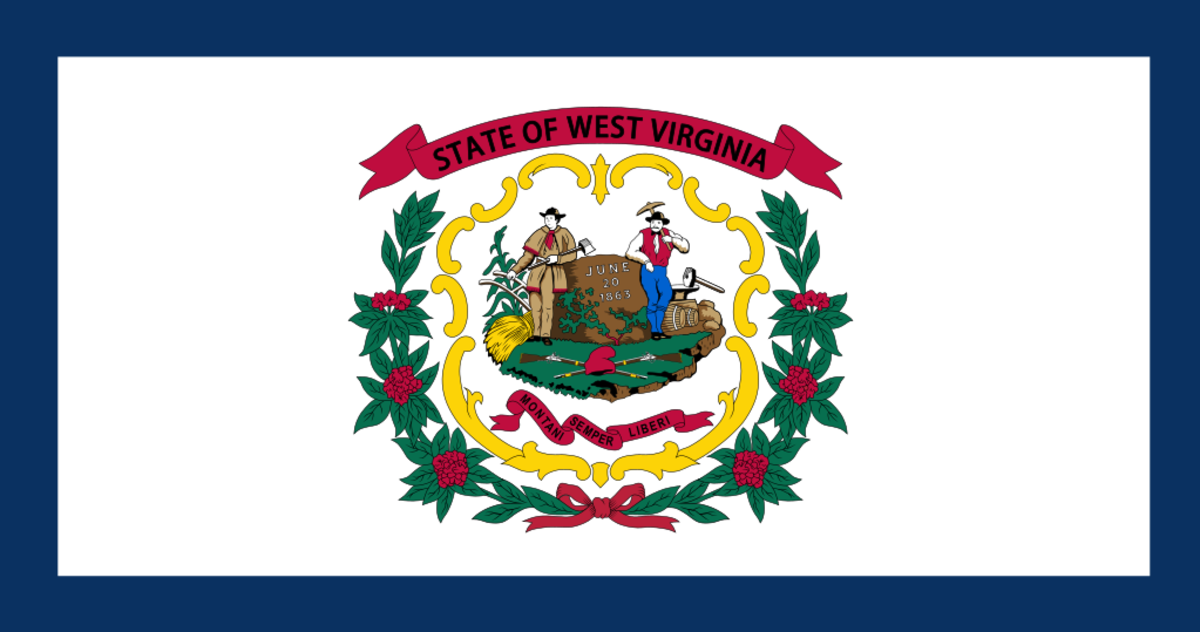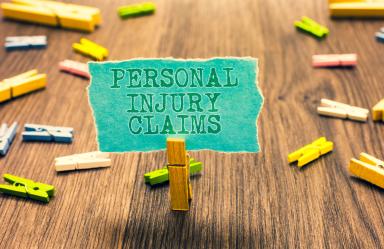West Virginia Personal Injury Laws

In 2021, the state of West Virginia was ranked as the deadliest among others in the country after the Centers for Disease Control and Prevention recorded a total of 2,724 accidental deaths. When observed alongside the state’s population of over 1.7 million, this translates into an average rate of 153 deaths per 100,000 people. These fatalities are caused by various incidents, ranging from traffic accidents and pedestrian mishaps to slips and falls.
In case an untoward incident leads to physical injury or death, victims and their dependents can seek reimbursement for their losses through a claim or lawsuit against those responsible. This article will explain the essential legal statutes for those in the Mountain State who wish to pursue compensation from a liable party. It will discuss laws related to a person’s negligence, guidelines for specific cases, and statutory limitations on time and recoverable damages.
West Virginia Car Accident Laws
Car accidents make up a significant portion of personal injury cases, further demonstrating how common crashes and collisions are. West Virginia law requires individuals involved in a car accident to notify the local police department or the nearest state police or county sheriff if the incident results in an injury, death, or property damage worth at least $1,000.
To protect victims from losses caused by such accidents, West Virginia requires all motorists to carry liability coverage. This would help those responsible for an accident pay for the resulting losses of other people in terms of their past and future medical treatments, as well as their lost wages, damaged property, and other expenditures.
According to state law, the mandatory minimum limits for liability coverage are:
$25,000 for the bodily injuries or death of a single person.
$50,000 for the bodily injuries or deaths of multiple people.
$25,000 for property damage.
Additionally, motorists in West Virginia can obtain uninsured and underinsured motorist coverage to supplement their existing liability coverage. These policies allow the insurance owner to address any losses in an accident where the offending driver has no insurance or has coverage that is not enough to pay for the damages involved. The minimum required amounts for uninsured and underinsured motorist coverage are the same as those for liability coverage.
There are other types of insurance policies motorists can use in a car accident, regardless of who is responsible. For example, MedPay coverage allows an accident victim to address losses related to their medical treatments, while collision coverage pays for the repairs or replacement of the insurance owner’s vehicle. Furthermore, comprehensive coverage reimburses damages caused by non-crash factors, including falling objects, theft, and vandalism.
West Virginia Medical Malpractice Guidelines
Medical malpractice is an area of personal injury where a patient suffers harm due to an error committed by a doctor or healthcare practitioner while administering treatment. Potential cases can involve any of the following:
Surgical mistakes.
Anesthesia errors.
Misdiagnosed illnesses.
Early discharge.
Failure of a medical professional to obtain a patient’s informed consent.
In West Virginia, the plaintiff in a medical malpractice case must first send a notice of their claim to the medical facility or professional they wish to sue 30 days before taking legal action. The notice, which will be sent through certified mail, must include:
A screening certificate of merit.
A list of all the healthcare providers who will be receiving the notice.
A statement explaining the basis of the plaintiff’s lawsuit and the theory of liability on which it is grounded.
A screening certificate of merit is a statement created by a medical professional who qualifies as an expert according to civil court rules. It should detail:
The expert’s qualifications in line with state law.
The expert’s familiarity with the medical standard of care regarding the victim’s treatment.
The expert’s opinion as to how the defendant in the malpractice case failed to adhere to such a standard, thereby causing harm to the victim.
Premises Liability in West Virginia
Premises liability involves incidents wherein a person visiting another individual’s property or establishment suffers an injury due to a hazard. These instances may involve a customer slipping on a wet floor in a store or a visitor falling from a staircase after holding onto a defective handrail. Because owners are required to ensure the safety of visitors by conducting routine maintenance and addressing issues on their property, they can be held liable for resulting damages if a person is injured because of such dangers.
People who enter another person’s property are classified into three categories, namely:
Licensees, or those who visit the property for their own purpose and with the owner’s consent; they include party guests and door-to-door salespeople.
Invitees, or those who visit the property to conduct mutual business and with the owner’s consent; these include customers at a store or patrons at a diner.
Trespassers, or those who enter the property without the owner’s consent or authorization.
As mentioned, owners must adhere to a duty of reasonable care by keeping their property safe for other people who may visit. In general, they owe this duty of care the most to invitees, followed by licensees. They do not owe such a duty to trespassers, though they must refrain from willfully and wantonly injuring these intruders. Additionally, they must exercise reasonable care if the trespasser in question is a child, but they can use justifiable force to ward off a criminal trespasser.
It should be noted that under West Virginia law, a property owner will not be held accountable if the danger that caused a visitor's injury was open and obvious or if the visitor was adequately aware of it. Additionally, if the victim was partially liable for their own injury by ignoring or failing to acknowledge any warnings notifying them of the property’s hazards, their potential recoverable damages can be impacted under the state’s modified comparative negligence rule.
Modified Comparative Negligence in West Virginia
For personal injury cases where the plaintiff is partially responsible for causing their injury, West Virginia courts follow the legal principle of modified comparative negligence. According to this rule, the total damages the person can recover will be reduced based on the percentage of their liability, as determined in court.
For example, if a victim is found to be 30% liable for the car crash for making a sudden lane change and thereby causing another vehicle to collide with them, 30% will be deducted from their award. If their total recoverable damages are worth $250,000, they will receive only $175,000 due to their liability.
Additionally, under the modified comparative negligence rule, a plaintiff whose fault reaches or exceeds a given percentage will no longer be allowed to recover damages. In West Virginia, this percentage threshold is 51%.
Joint and Several Liability in West Virginia
If there are multiple liable parties in a West Virginia personal injury case, the court adheres to the rule of several liability. This means the defendants will only be held liable for compensatory damages equal to the percentage of their respective fault in the case, with separate judgments being made for each party. To determine the amount each defendant must pay, the court will multiply the percentage of their individual fault by the total amount of the victim’s recoverable damages.
However, if the defendants acted in concert to create and execute a plan to commit a tortious act against the plaintiff, they will be held jointly and severally liable, meaning they are legally obligated to contribute to paying for the victim’s damages in full.
West Virginia Business Liability Insurance Requirements
West Virginia does not have statutes requiring companies, stores, or establishments to obtain business liability insurance. However, government agencies in the state encourage business owners to acquire such a policy to protect their finances in case an unforeseen incident causes harm to someone at their establishment. Business liability insurance will pay for losses stemming from a person’s injuries and property damage, as well as potential legal fees if the incident results in a lawsuit.
When choosing the amount of business liability insurance coverage to obtain, employers must consider the type of products and services they offer, the number of workers they have, and the frequency of their interactions with consumers. In general, coverage worth $500,000 to $1 million is sufficient for most small businesses, while high-risk companies and establishments that regularly interact with customers may require higher amounts.
Though business liability insurance is not required, West Virginia law dictates that all employers must have workers’ compensation insurance. This policy provides monetary benefits that help employees address expenditures related to their medical treatment, rehabilitative care, and lost income in case they suffer an injury at work. Business owners can file a workers’ compensation claim at the Employer Coverage Unit of the West Virginia Offices of the Insurance Commissioner.
Other types of required insurance for employers in the state include:
Surety bonds worth at least $2,500 for both individuals and firms that offer security guard and private investigator services.
Wage bonds for commercial construction companies and those that engage in the severance, production, or transportation of minerals (except for water transporters, railroads, and companies eligible for exemption).
How Much Can Someone Sue for an Injury in West Virginia?
In most personal injury cases in West Virginia, there are no statutory limitations to the amount of economic and non-economic damages that can be awarded to a plaintiff. This means victims and their families can be fully reimbursed for their past and future medical treatments, lost income, damaged property, and other similar losses. They can also pursue and recover maximum compensation for damages stemming from intangible factors like pain and suffering, depression, emotional distress, and loss of companionship.
However, West Virginia does have specific caps on damages that can be awarded in certain cases. They include the following:
$250,000 in non-economic damages for medical malpractice cases.
$500,000 in non-economic damages for medical malpractice cases that result in permanent physical or mental injuries affecting the victim’s capacity for self-care; substantial physical deformities; loss of a limb or bodily function; or wrongful death.
$500,000 in non-economic damages for cases involving a government agency or employee.
In addition to these limitations, damages related to pain and suffering are not awarded to employees in workers’ compensation cases. If a victim files a suit against a government entity or employee, they cannot specify the amount of damages they seek to recover.
Moreover, West Virginia courts can award punitive damages in a personal injury case if the plaintiff can prove with the use of “clear” and “convincing” evidence that the defendant’s actions showed actual malicious intent or a reckless and willful disregard for others’ safety. In the event that these damages are allowed by the court, they are limited to $500,000 or four times the amount of total compensatory damages awarded to the plaintiff, whichever is greater.
The Statute of Limitations in West Virginia
West Virginia’s civil statute of limitations states that personal injury plaintiffs have a maximum of two years to file a claim or lawsuit against those responsible for their injuries. The same duration applies to cases involving wrongful death, medical malpractice, and injury to a person’s property. In most scenarios, the statute begins on the date the plaintiff suffered their injury. For wrongful death cases, though, it begins on the date of the victim’s passing.
It should be noted that West Virginia adheres to the discovery rule in most cases. According to this rule, the statute of limitations won't officially start until the victim discovers or should have reasonably discovered their incident-related injury. This can apply in cases where they have not immediately found out about the physical harm they have suffered until a later time.
Exceptions and Special Rules on West Virginia’s Statute of Limitations
West Virginia’s statute of limitations is enforced differently in medical malpractice cases where the defendant is an assisted living facility, a nursing home, a hospital section that provides intermediate or skilled nursing care, or any individual who works under these facilities. In these cases, the statute lasts only one year instead of two. Additionally, while the discovery rule can apply in such scenarios, a plaintiff can no longer take legal action if more than 10 years have elapsed since the date of the malpractice in question.
There are also certain cases where the statute of limitations can be “tolled” or paused to grant a plaintiff more time to file a suit. This applies if the individual entitled to take legal action against a defendant is either legally insane or under the age of 18. As such, the statute will not continue or commence until the person recovers from their insanity or turns 18. However, the statute cannot be extended beyond 20 years from the incident that gave rise to the plaintiff’s cause of action.
Additionally, the two-year deadline for most medical malpractice cases can change if it involves a victim younger than 10 years old. In these situations, the child’s parent or guardian must file a claim within two years of the injury or before the child’s 12th birthday, whichever is longer.
Legal Resources for Injured Folks in West Virginia
West Virginia State Bar
The West Virginia State Bar’s website offers access to online services that assist state residents with legal concerns. Its Lawyer Referral Service enables people to find potential attorneys to engage with them in a 30-minute consultation regarding their questions and cases for a maximum fee of $25. The website also offers information regarding Tuesday Legal Connect, where volunteer lawyers address basic legal inquiries for free every Tuesday from 6:00 p.m. to 8:00 p.m. Additionally, West Virginians who wish to file a complaint against a lawyer for unethical misconduct or unlawful practice of law may do so by completing and submitting the forms on the website.
Free Legal Answers - West Virginia
West Virginians with questions involving civil law matters can visit Free Legal Answers, a virtual legal advice clinic where lawyers throughout the state can address their inquiries at no cost. The website enables its visitors to determine whether they are qualified to use its services by providing questions related to their respective concerns. Queries are submitted to available pro bono lawyers through e-mail, with replies being sent to users in the same format. However, Free Legal Answers does not cover matters related to criminal law or connect individuals to attorneys for potential legal representation.
West Virginia Department of Health & Human Resources - Violence & Injury Prevention Program
The WVVIPP is a statewide initiative maintained and overseen by the West Virginia Department of Health & Human Resources. It focuses on monitoring existing safety practices and implementing new strategies that prevent injuries among state residents based on existing data and needs. It also disseminates information concerning injury prevention through the resources available on the program’s website. These cover different areas related to accidental harm and deaths, including motor vehicle accidents and traumatic brain injuries.
Expertise.com StaffAuthor
Step into the world of Expertise.com, your go-to hub for credible insights. We don't take accuracy lightly around here. Our squad of expert reviewers, each a maestro in their field, has given the green light to every single article you'll find. From rigorous fact-checking to meticulous evaluations of service providers, we've got it all covered. So feel free to dive in and explore. The information you'll uncover has been stamped with the seal of approval by our top-notch experts.




